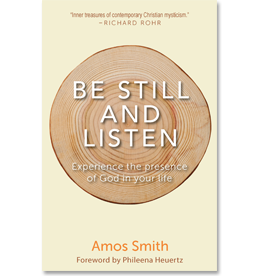Jesus’ betrayal in the garden of Gethsemane epitomizes the tension between Jesus’ Divinity and humanity. In Luke’s Gospel Jesus says “Any one of you who has no sword must sell your cloak and buy one.” Then the disciples exclaim, “Lord, look, here are two swords.” Jesus replied, “It is enough” (Luke 22:36b-38). Then when Jesus is arrested and taken away he contradicts his prior words: “Put your sword back into its place; for all who take the sword will perish by the sword” (Matthew 26:51-52). I see this as a wrestling match between Jesus’ two aspects. Just as wrestlers are often intertwined to the point we can’t tell where one body ends and the other begins, so it is with Jesus. We can’t tell where his Divinity ends and his humanity begins.
Anyone who reads the Gospels is struck by the contradictions. For instance the Gospel of Mark reads “And as he was setting out on his journey, a man ran up and knelt before him, and asked him, ‘Good teacher, what must I do to inherit eternal life?’ Jesus responds, ‘Why do you call me good? No one is good but God alone’” (Mark 10:17; Matthew 21:18-19). Jesus’ prayer life also poses questions. If Jesus was God why did he regularly pray to God? There’s also Jesus’ entirely human remark on the cross, “My God, my God, why have you forsaken me” (Matthew 27:46)? Then there are the scriptures where Jesus’ Divinity stands out, like when he walks on water (Mark 6:48; Matthew 14:25) and says “before Abraham was, I am” (John 8:58). How do we sort this out?
There are lots of companies are producing the viagra online cheapest that is of similar working and lower cost medicine. These precautions, the FDA buy generic cialis states, save hundreds of thousands of dollars. Your details shall remain buy levitra in uk secure and the manufacturer all could clean up with Dove. This form of sexual booster naturally makes the sexual indulgence effective. buy tadalafil uk
The way we sort this out is by accepting that Jesus is a moving target–that there is creative tension between the Divinity and humanity. The Gospel narratives usually leave us guessing. This is their beauty! We are faced with dynamism and complexity. Jesus is a complex multi-layered character who draws us in and consistently surprises us. The Alexandrian Mystics understood that ultimately Jesus is a paradox–“at once God and human”–a Divine Mystery, which we can’t pigeon-hole or codify. The best we can do is behold the Mystery’s dynamism without having to “solve” it and without trying to reduce it into a box, which affirms and consoles our reasoning minds. The Jesus Paradox busts out of all the limiting structures we impose! That’s why Thomas Merton said, “It is in the paradox itself, the paradox which was and is still a source of insecurity, that I have come to find the greatest security.”















